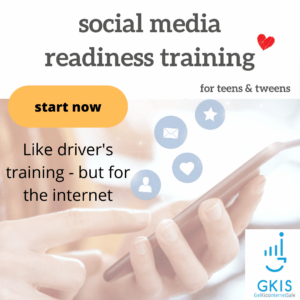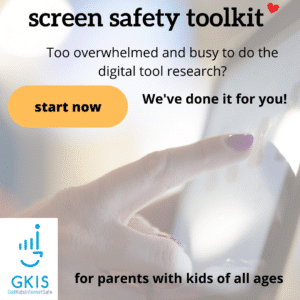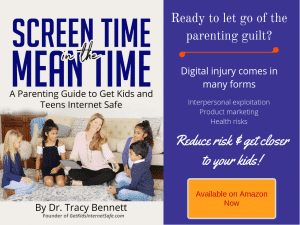Schedule a webinar or presentation with Dr. B for your youth leaders!
(They'll LOVE you for it!)
Dr. Tracy Bennett, Founder of GetKidsInternetSafe, is a Screen Safety Expert and Licensed Clinical Psychologist who has been in private practice for over 25 years treating kids, teens, adults, and families. She has also taught clinical psychology, addiction studies, parenting, and directed studies at California State University Channel Islands for over 17 years.
She recognizes how critical it is to take a developmental perspective regarding screen safety. Her programs are matched to her audience and designed for an interpersonal, interactive delivery to enhance the verbal and critical thinking skills of each participant. She finds that she learns from them just as they learn for her. For faith-based customers, she will work closely with you to partner for consistent and complementary messaging.
**Participants are guaranteed to leave with a sensible, effective toolbox geared for student/parent mastery of strategies for screen safety and socioemotional wellness.
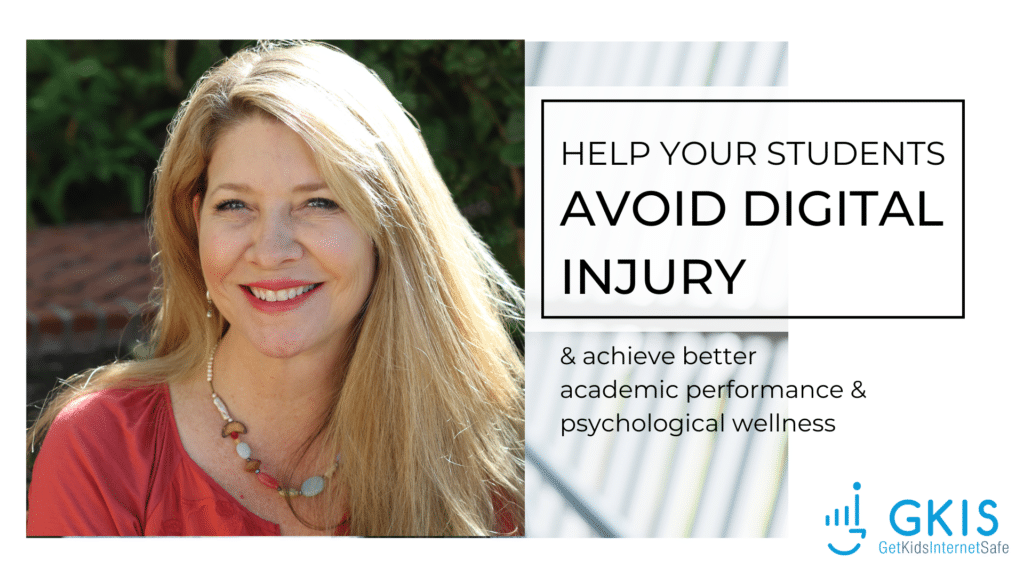
Elementary Schoolers
HOW TO MAKE GOOD CHOICES ON-SCREEN
Screen Challenges Typical of Elementary School: Developmentally, elementary-age children are onboarding socioemotional skills and the academic basics with the warm and encouraging support of parents, caregivers, teachers, clergy, and youth leaders. Older elementary-school kids are building on those basics and gradually gaining independence. Screen time helps them with these critical developmental tasks, but they must be protected and monitored to avoid inappropriate content and unhealthy screen use. Digital citizenship lessons are a good start. Objective for the Training: In this training, Dr. B offers expert education about how to facilitate children in using good judgment when exploring online neighborhoods. By helping them understand that their behavior online is as important to manage as their behavior offline, her program encourages kids to start an important screen safety dialogue with their youth leaders and parents.Middle Schoolers
SCREEN TRAPS & HOW TO AVOID THEM
Screen Challenges Typical of Middle School: Developmentally, tweens and teens are turning on to finding their tribe and creating a unique, independent identity. They start to move away from parent-defined behavior and toward peer-defined behavior. They love following trends and celebrity culture and are easily influenced by others. Screen time helps them with these critical developmental tasks, often to the point of distraction. Teens often intentionally access inappropriate content with little regard for stranger danger.
Objective for the Training: In this training, Dr. B offers expert education about the different types of digital injuries and how to prevent them with sensible, developmentally-sound strategies. She also introduces the idea of creating a positive digital footprint so participants can challenge their charges to consider future consequence (a skill they have likely not even considered yet).
High Schoolers
MAKING YOUR DIGITAL FOOTPRINT WORK FOR YOU
Screen Challenges Typical of High School: Developmentally, high schoolers are starting to focus on gaining independence, college-readiness, and career development. They are on-loading complex abstract thought and tackling morality issues that impact their community. Parents and teachers often struggle to support their new-found independence while staying influential and connected.
Objective for the Training: In this training, Dr. B offers expert education about how youth leaders can facilitate students to avoid digital injury while creating a digital footprint that works for them for college and career. As a bonus, Dr. B offers psychological wellness tools to optimize mental health!

DEPRESSION & ANXIETY AMONG ADOLESCENTS: PSYCHOLOGICAL WELLNESS STRATEGIES
Mental Health Challenges Among Teens: 20% of teens will experience depression before they are adults. Teen suicide is the third leading cause of death among youth 10 to 24 years of age. Most clinicians agree that screen issues are commonly a contributing factor. Mental illness among kids and teens skyrocketed during the COVID-19 pandemic.
Objective for the Training: In this training, Dr. B offers expert information about how our virtual lives impact mental health and contribute to digital injury. Dr. B offers teen-tested psychological wellness strategies that she has tested over 25 years of clinical practice.
Consider coordinated messaging with a same-day youth webinar(s) + parent webinar package!
“I attended your seminar at the Camarillo library last week and thought the material
was excellent in content, research, and presentation. You have so many practical and non-alienating suggestions–such as let your child know ahead of time you will be checking the phone for activity.
I am a grandmother of five and both our daughters have taken your seminar and are implementing your suggestions. Thank you so much for helping us all be better parents and grandparents.”
Blessings on you and your work,
Suzanne S.
Media Appearances
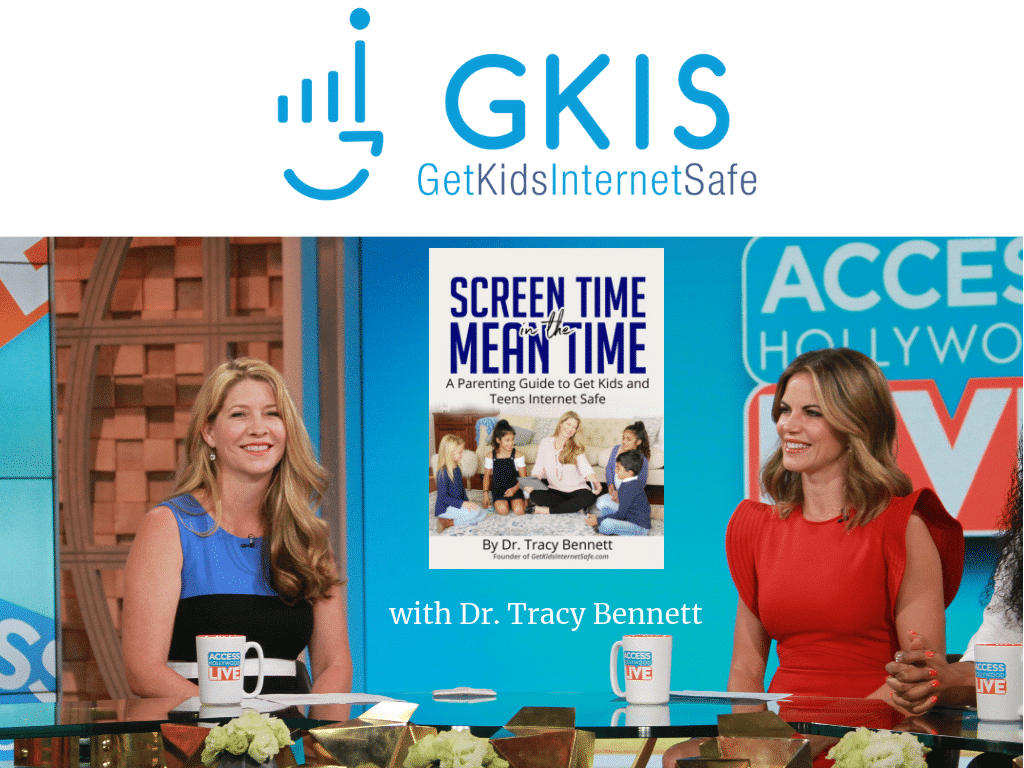
Dr. Tracy Bennett frequently appears on radio, podcasts, and television as a Screen Safety Expert. She is a psychologist, a mom, and a realist. She not only treats families in her practice, but she has three kids of her own. Her warm relatable style makes the information easy to understand and her sensible strategies are easy to implement for immediate results.
Ask Dr. Bennett
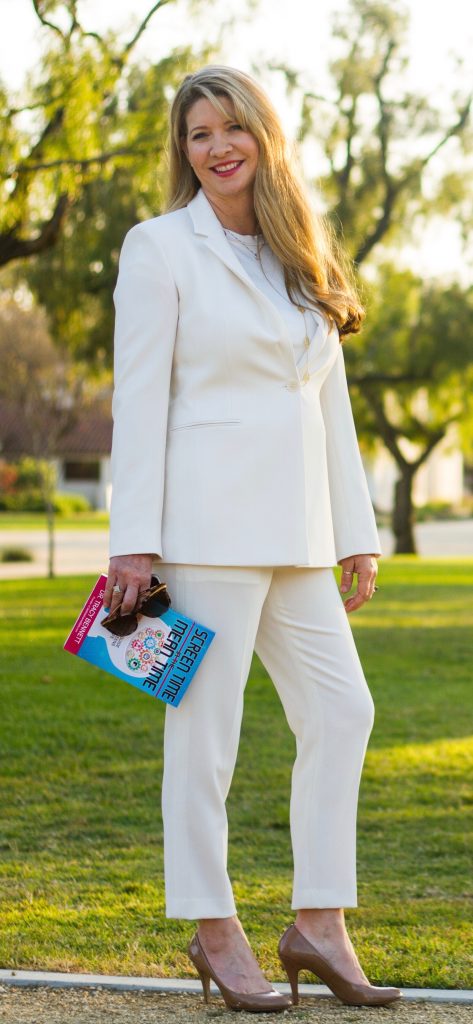
All of us are addicted to our screens. What are your tips for screen sanity?
How can we as a corporation help our employees become more productive?
What are your top three concerns about screen risk? Top three benefits?
Parents report that their kids come unglued when they try to manage their screens. Does that mean they’re addicted? What can parents do about that?
The FBI reports that on-screen child sexual abuse is at an all-time high, what are your best tips for safety and prevention of harm?
Do screens help kids learn or are they a distraction? Does screen-free parenting harm child learning potential?
The terms of agreement for social media platforms is 13 years old, yet 4 out of 5 tweens are on social media before the age of 12. Why do parents let that happen? Is it a big deal or is it a real safety concern for kids?
Is sexting the new sexual norm? What impact will that have on this generation?
We are the loneliest population despite being highly connected online. What are the risks and benefits of virtual connection?


